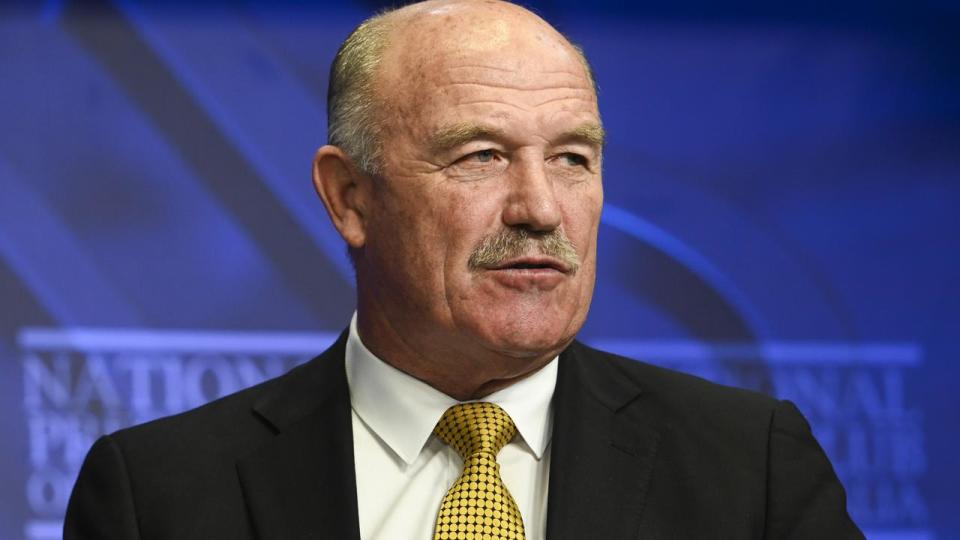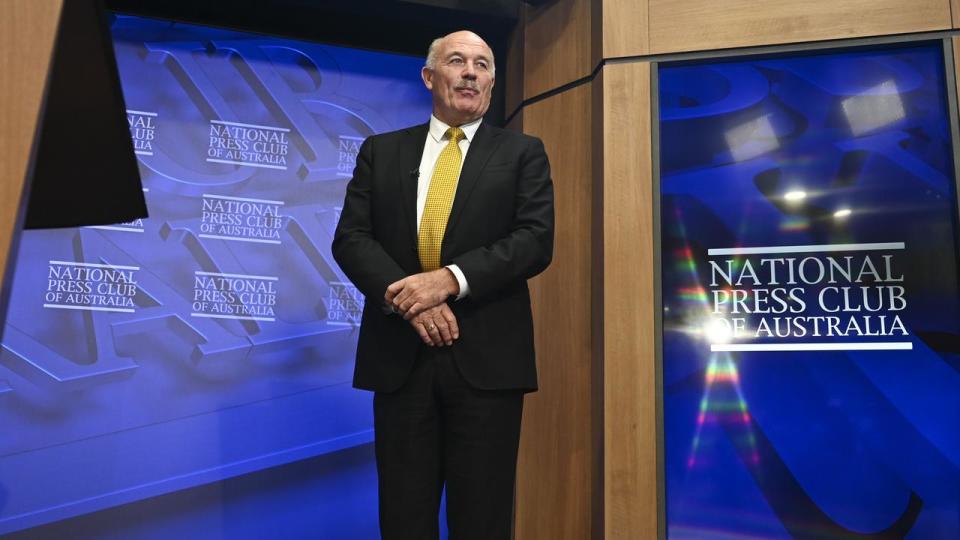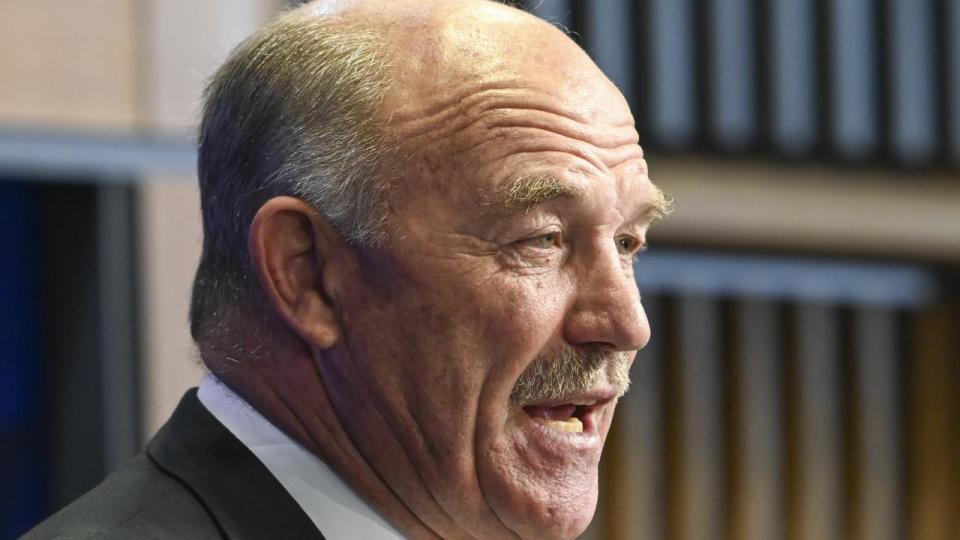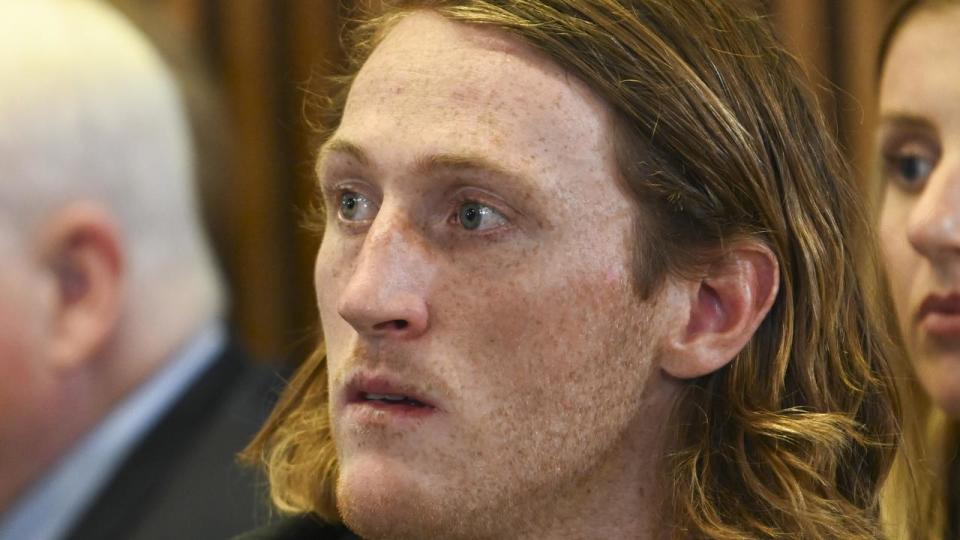‘Filled with fear’: Legend’s painful admission

Queensland rugby league legend Wally Lewis has called on the federal government to pour more funding towards dementia and brain injury research after revealing the stark realities of living with a debilitating brain disorder.
The former Maroons captain, nicknamed “The King”, spent three decades honing an extraordinary elite sporting career that saw him win a record eight Man of the Match awards at State of Origin and spearhead Queensland’s dominance over the league during the 1980s and 90s.
The 68-year-old announced his shock retirement as a sports presenter last year, after revealing he was suffering from the effects of a neurodegenerative condition known as chronic traumatic encephalopathy, or CTE.
He detailed the profound effects of his early onset dementia diagnosis in a candid speech to the National Press Club on Tuesday.
“I once had the confidence in myself to succeed – lead my team to victory, captain my country, remember the strengths and weaknesses of my opposition, organise myself and feel in control of my life,” Mr Lewis said.
“Now, much of that confidence has been taken away from me by the effects of Probable CTE Dementia.

“My everyday life is no longer blessed by confidence in my daily activities. Now, I struggle to accept that it has been filled with fear and embarrassment about how forgetful I’ve become.”
CTE is the progressive degenerative disease most commonly found in people who have suffered repeated concussions and traumatic head injuries.
The disease is most commonly associated with athletes involved in contact sports and its symptoms include memory loss, confusion, impaired judgment, aggression, depression and eventually, progressive dementia.
There is no known treatment or cure for the condition.
Mr Lewis said Australia urgently needed to adopt nationally consistent protocols to help prevent, detect and monitor head injuries in all sports and said players needed to be taught at a grassroots level to understand the risks.
“Players need to understand that just because you can’t always see it, like a broken arm, a brain injury needs to be taken seriously,” he said.
“It’s not a badge of honour to go back out on the field with a head injury – it’s careless.”

A landmark report into head injuries and concussions in sports released last year called on the government to develop a national strategy to reduce concussions in contact sports, including enforcing binding protocols during games to better protect players from head injuries.
Currently, NRL sporting codes stipulate that a player must wait 11 days to return to the field after suffering from a brain injury. The AFL requires a minimum of 12 days.
Mr Lewis called on the federal government to commit $18m over three years towards a national pilot program to support people with CTE and to help raise awareness of the condition.
He said in the wake of his diagnosis he has lived with constant fear and anxiety every day about what his future would look like.

“Along with the delivery of this program will come an expectation, especially from parents with kids in sport, that sufficient actions are now being taken to protect their
children. It’s our duty to do this and get it right,” he said.
“I can’t say it enough – it is preventable. We owe it to our kids.”
